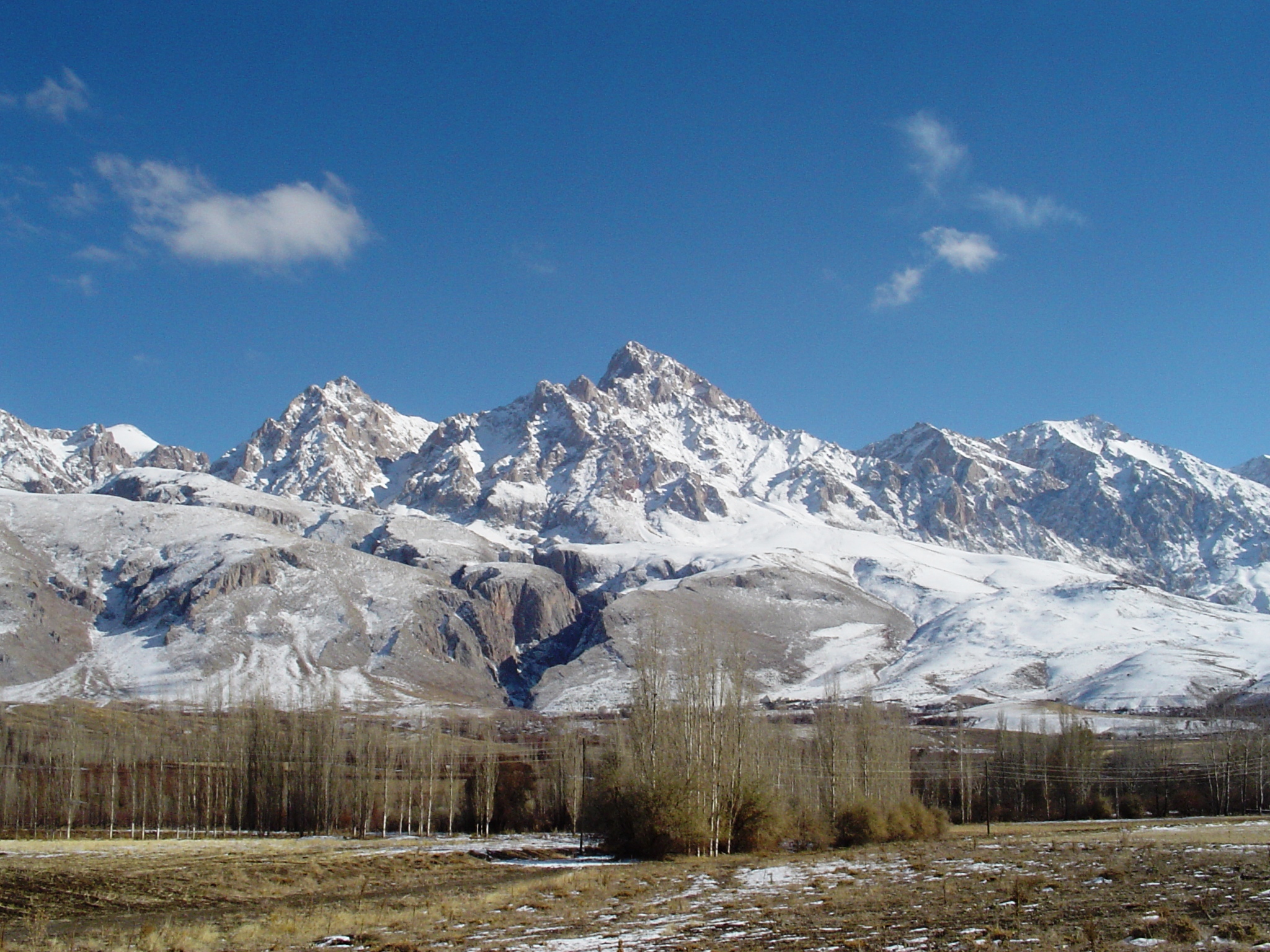 |
| Taurus Mountains (Wikipedia image) |
The Byzantine landscape in this part of the world was seen by Muslims as a wilderness; they planned to cultivate and civilise it, like settlers a thousand years later, wanting to tame the American West. The mountains formed a natural divide, although it was a permeable one because of the "gaps between the teeth" in the mountains, as the people called them: the passes.
Prof. Ager told us of archeological digs recently done in Antioch (now Antakya, Turkey) and in places north of there and around the Euphrates. The archeologists had used remote sensing and satellite imagery too. For obvious reasons several study sites near Aleppo and Raqqa, Syria, have recently been put out of bounds. The word Raqqa, incidentally, means "flooded plain". The researchers had studied canal sites, marsh sites and way-stations. He mentioned that after the first Muslims took control of Syria in the 8th century, far fewer villages existed than before that time. They had not been heavily defended; many were unwalled.
Canal sites
Traces of these settlements were discovered in the vicinity of the Afrin River or the Euphrates: evidence of water lifting devices and mills. Irrigation systems protected farmers against lean years and cooperation between the landowners, through water councils, was essential for the sharing of resources. After the early Islamic conquests, Muslim farmers took over abandoned lands and developed or revitalised them, which allowed them tax exemptions. Any remaining Syriac Christians were permitted to keep their lands. According to the 7th / 8th century poet Jarir b. Atiya, the area was "a paradise on earth" and onlookers would "bite their fingertips" (a sign of jealousy) to see the orchards ready for harvest.
Marsh sites
During Byzantine days, massive erosion on the slopes of the uplands had occurred, due to unsustainable agricultural practices. When the canals flooded, wetlands became more permanent. This was not a deterrent to some Islamic settlers who constructed their villages in the wettest parts, such as the Lake of Antioch, not drained until the mid-20th century. These were reed-gathering people on small islands, who extracted clay from the marsh bed and hunted waterfowl for their sustenance. These medieval Marsh Arabs were independent-minded people who tended to rebel against the Caliph's armies. Along with their water buffalo, they were relocated or became nomadic and may be the ancestors of today's Romany.
Way-stations
People stopped here to trade brass and ceramic artifacts, and travelling fairs came by. Armies did not much interfere with these activities although armies came and went, and prisoners were sometimes exchanged (bartered) at the river crossings. The Abassids connected with the outside world by sea, so the cedar and pine trees growing around the way stations were cut down as timber for the construction of merchant ships. Fig trees grew there too.
Prof. Ager's lecture included a mention of Christian monasteries in the region, that had flourished for centuries and that remained functional until the 10th century. The monks had no specific loyalties or inhibitions, it seems. Travellers were served wine there and the attractive young monks and nuns appealed to some, such as an Abassid aristocrat who referred to a "tempting gazelle" he had noticed, whether male or female is unclear. The caves of Cappadocia were a special case, where Christian communities, both people and animals, sought refuge from invaders and inclement winters. In fact the Islamic raids only took place in the spring or summer; the Arabs knew of their underground granaries and the troglodytes' passages were sealed with great stones for greater security. Christians would raid Islamic lands as well.
The plains of Syria were dry as a bone in the summer months, which caused the Bedouin tribes to wander westwards towards the mountains and with their herds of sheep they might join Byzantine groups. To some extent the construction of the canals and the way-stations were a ploy to encourage them to stay put, but it didn't work. In later centuries Kurds and Basques have been similarly hard to control by a central government.
It is challenging to make sense of the history of the near east with its never-ending Islamic Jihad and the associated propaganda on every side. There were / are Christian Arabs as well, which further confuses matters. The clashes continue and the archeologists, during their digs at the Antioch site, sometimes hear bombs falling on Syria. Antakya is only a two-hour drive from Aleppo.

No comments:
Post a Comment